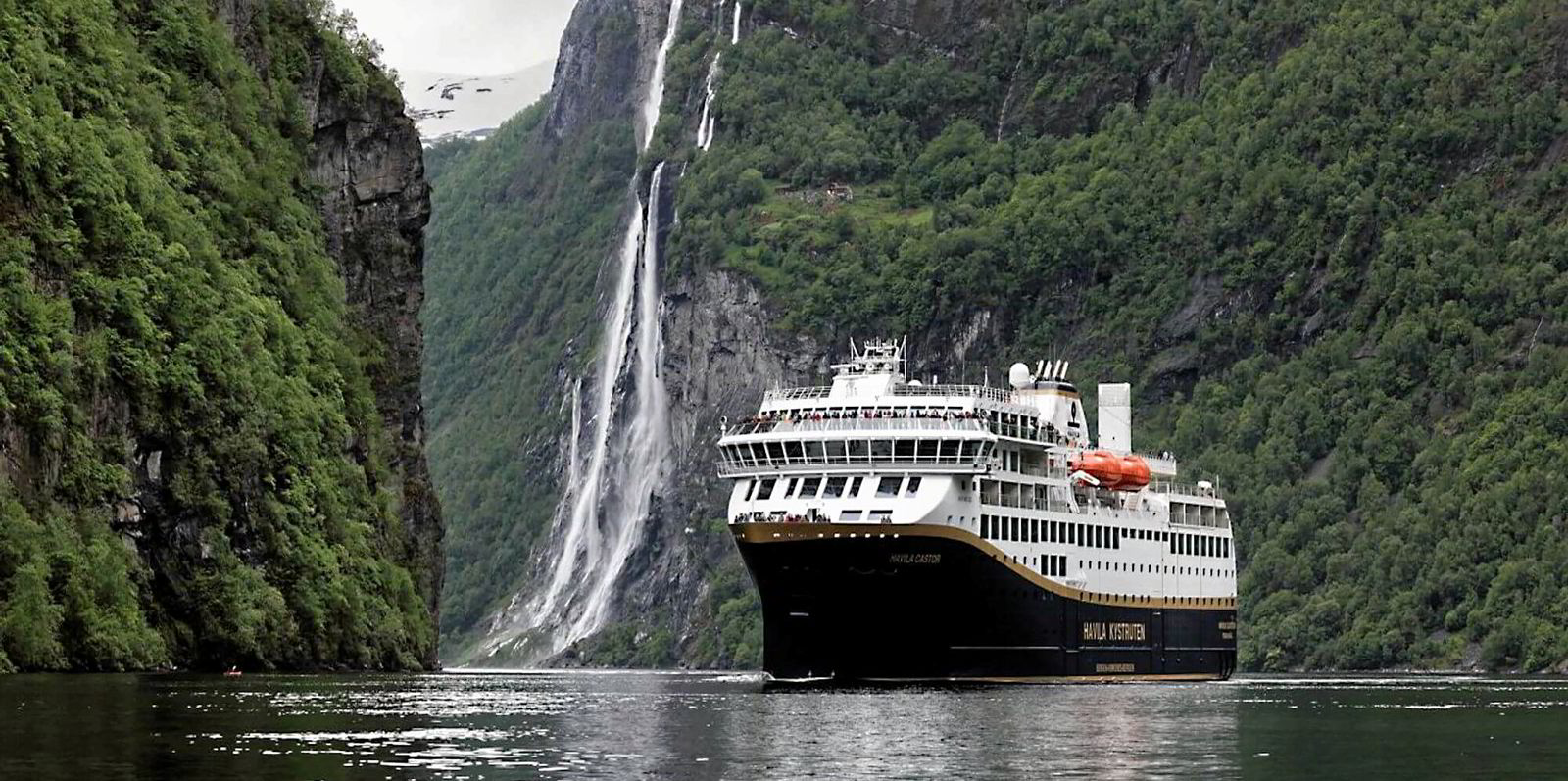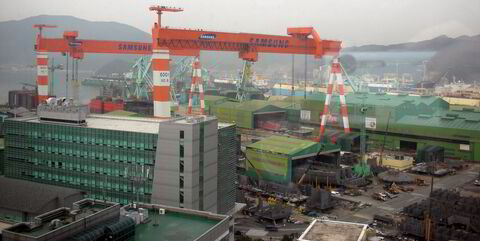As many as 100 ships could be caught up in sanctions issues following last year’s blacklisting of Russian financier GTLK.
But the good news for owners who once did business with the Moscow outfit and its arms based abroad is that their ships can be dislodged from the financing arrangements potentially holding up those vessels from trading.
“There is a cut through now,” Wikborg Rein senior lawyer Fiona Rafla told TradeWinds. “It is possible to divest yourself of these contracts and that is going to be widely applicable because we know there are dozens of these ships out there.”
Rafla and managing partner Chris Grieveson worked with Norwegian cruise and ferry operator Havila Kystruten to keep GTLK from seizing two ships already delivered and two others still under construction in Turkey after GTLK declared the company was in default.
GTLK had been sanctioned by Western countries last August for their alleged ability to generate revenue for Moscow.
The two vessels already in Havila’s employment were financed through GTLK Asia in Hong Kong and the newbuildings through Dublin-based GTLK Europe.
The London attorneys were able to get an injunction against GTLK retaking the newbuildings and a first-of-its-kind forced use order in Norway to keep one of the ships already on the water moving under a conservatorship. The second was already owned by Havila.
For the ships under construction, GTLK Europe’s liquidation helped, as sanctions were effectively lifted and the courts were able to step in to ease the unwinding of the financing agreements as management failed to act.
Courts also issued decisions allowing Havila to make payments into frozen accounts, ruling they constituted payment even if GTLK could not access the funds, and that in the context of the contracts, the immediate repayment requested by GTLK included time to allow Havila to find new financing.

To facilitate that €305m ($333m) in financing — eventually obtained through New York-based HPS Investment Partners — five general licences needed to be obtained from sanctions authorities in the US, UK, Ireland, Belgium and Luxembourg.
Rafla and Grieveson said the authorities were responsive to their requests, although lining up the licences took roughly six months and included an extraordinary licence in the UK.
They added that many of the judgments obtained for Havila would hold true for other owners dealing with Russian lenders.
“There will be lots of other owners out there in these GTLK situations, some may have bought their way out,” Grieveson said. “We are aware of some people whose ships are standing still and haven’t been able to use them.”
He said GTLK Europe financed 19 ships of varying types, and many more out of GTLK Asia.
“You can’t really put a number on that,” he said.
A third company — GTLK Middle East — also exists, although it is unclear how many ships it may have financed as Wikborg Rein has not yet been asked to advise on any of those deals.
The two attorneys said all three GTLK outfits had the same business model — to rapidly finance billions for ships and aircraft.
“I wouldn’t be surprised in the slightest if the Middle East also had ship financing contracts on vessels that are either laid up or still trading,” Rafla said.
“Perhaps their trading patterns are outside sanctions, although I can’t really conceive of a shipowner that doesn’t deal in dollars.”
Grieveson said those ships could avoid running foul of Russian sanctions if they engage entirely in limited domestic trades.
All bets are off
“I wouldn’t be surprised at all if they still had an intention to write new business out in the Middle East,” he said of GTLK Middle East.
“I really don’t know what’s going on with the Middle Eastern operation, but we haven’t seen anybody come to us with a suite of contracts involving GTLK Middle East and saying our vessels are stuck.”
Grieveson added that owners looking for new financing agreements should add clauses making sanctions on a lender a reason for terminating events.
“We’ve looked at about four or five sets of these contracts with different [firms] now following this, none of them have a provision that allows you to say that, ‘You’ve got yourself sanctioned, lender, all bets are off’,” he said.
“I don’t know if anyone has the commercial power to try and push that through these days, but you should definitely be trying to get that in.”
The Oslo-listed cruise outfit Havila Kystruten announced in late July that it had taken ownership of the 640-berth Havila Pollux and Havila Polaris (both built 2023) after the company secured new financing following the blacklisting of its old Russian partner.
“The ships are wholly owned by the company and are registered in the Norwegian Ship Register NOR and now sail under the Norwegian flag,” Havila Kystruten said in a stock exchange filing.
The two were built at Turkey’s Tersan Shipyard. Both are understood to have now started trading.
Havila Kystruten financed the duo through Moscow-based JSC State Transport Leasing Co, also known as GTLK, but had to tear up their agreement after it was sanctioned by Western governments following Russia’s invasion of Ukraine.
In May, the company was allowed to find new funding.





